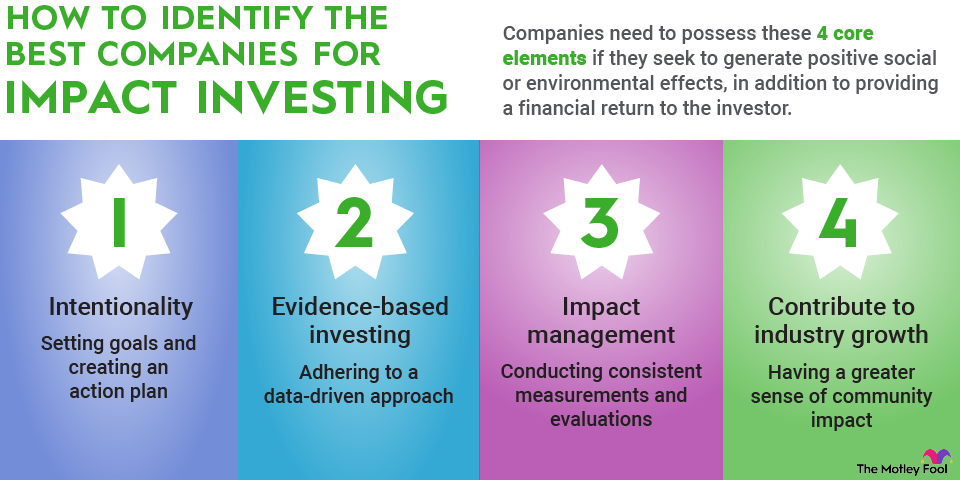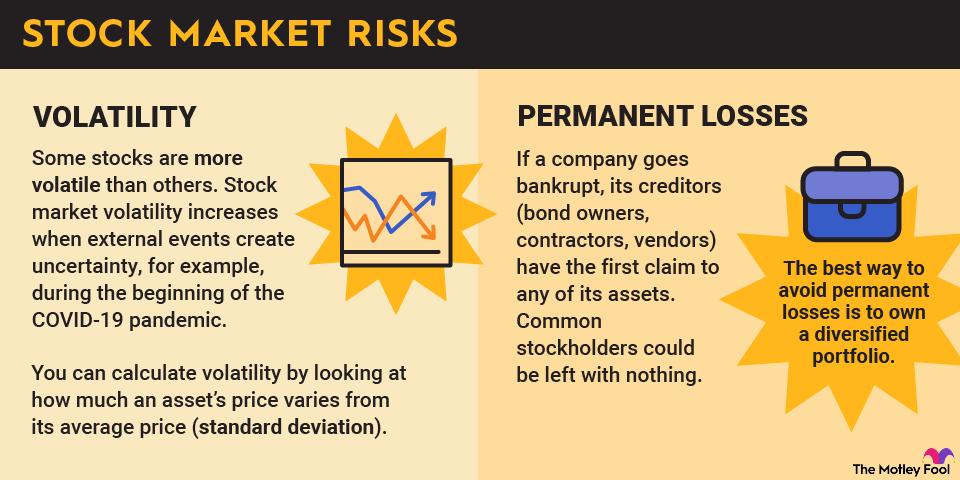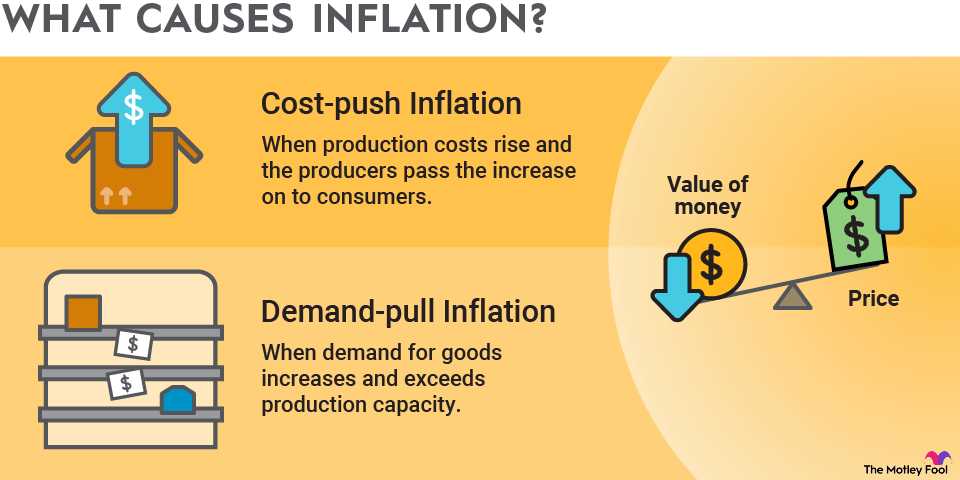Impact investing is growing in popularity as investors become increasingly aware of how corporations can affect society, communities, and the environment. If you've become wary of investing in companies with harmful, unsustainable business practices, you may be ready to adopt impact investing as a strategy.
Through impact investing, you can invest in companies committed to social good. This can take several forms, such as creating new and sustainable food sources, producing clean and accessible water, or contributing to the renewable energy infrastructure.

What it means
Impact investing involves supporting positive social or environmental initiatives while earning financial returns. Impact investors select their securities carefully to support causes that benefit the greater good. The selection criteria are often personal -- you decide what causes to support and the financial goals you want to achieve.
You can define those criteria in terms of what you will or won't accept. For example, you might choose to invest only in renewable energy companies. Or, you could actively avoid investing in potentially harmful industries, such as oil and gas or tobacco. By this rule, you wouldn't own oil and gas securities directly or within a mutual fund or ETF.
Elements of impact investing
According to the Global Impact Investing Network (GIIN), a structured impact investing program has four key elements. While these apply more directly to professional managers of impact portfolios, you can use them in your own investing practice.
- Intentionality: Intentionality refers to your targeted goal to help solve society's most pressing problems. This conscious pursuit of societal good differentiates impact investing from other investing practices that consider corporate behavior. With impact investing, positive social impact is not a bonus; it is a primary outcome you demand from your investments.
- Evidence-based investing: Many companies report on their social and environmental initiatives, but some of this reporting is vague. Your job as an impact investor is to base your investing decisions on verifiable data that shows the company is achieving its social objectives. The data can come from the company directly or from a reliable third party.
- Impact management: Plan on monitoring your impact investments for performance. Investments that do not make the desired impact may no longer have a place in your portfolio.
- Contribute to industry growth: True impact investors willingly share their practices with other investors to encourage the growth of the impact investing community. Greater change is only possible if more investors align on their standards for positive social impact.
Four types of impact investments
Impact investments can be categorized by the type of change they pursue, such as:
- Educational: Within the education realm, impact investments may work to reduce inequities in teaching and learning outcomes.
- Agricultural: Agriculture-focused investments include companies seeking to enhance food security, provide clean water to hard-to-reach areas, or increase food production in climate-affected regions. Agricultural technology can also play an important role in delivering societal and environmental benefits.
- Healthcare: Socially responsible healthcare companies may focus on pandemic readiness, medication and treatment delivery, and emerging disease research.
- Infrastructure: Infrastructure-focused investments typically involve companies that support a broad transition to renewable energy.
Related investing topics
Why make an impact investment?
You might adopt impact investing if you are passionate about social initiatives and positive corporate behavior. Impact investors typically feel great about using their wealth to support causes that are important to them. Ideally, this results in both financial gain and the satisfaction of knowing you've contributed to social or environmental causes.




















